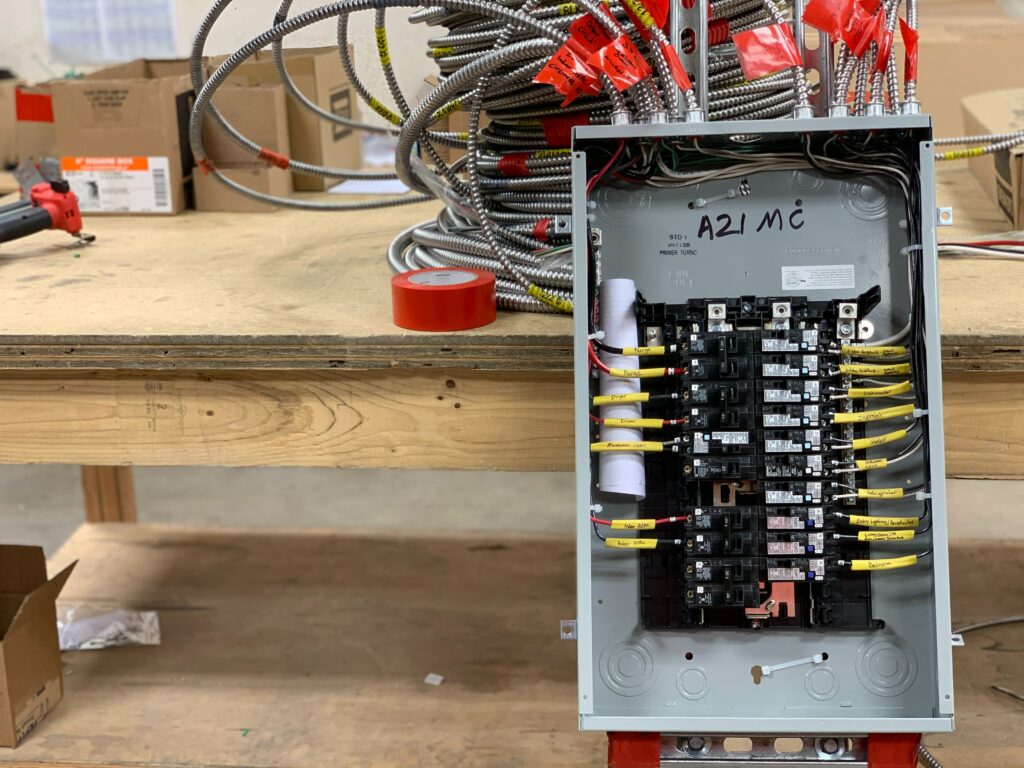Troubleshooting Electrical Issues
Schedule Service
MASTERING TROUBLESHOOTING ELECTRICAL ISSUES – SAFETY TIPS
At Ryan Electric, troubleshooting electrical issues is the process of identifying, diagnosing, and resolving electrical problems. Whether you’re dealing with a minor annoyance like a dead outlet or a more complex issue involving circuits, fuses, or circuit breakers, troubleshooting is the first step in finding a solution.
With our expertise, you can create a secure environment for your family, free from the hazards associated with outdated wiring systems.

The Tools of the Trade For Mastering Troubleshooting Electrical Issues
Before diving into the art of mastering troubleshooting electrical issues, it’s essential to have the right tools at your disposal:
- Voltage Tester: This tool helps determine whether an electrical circuit is live or dead.
- Multimeter: A multimeter measures voltage, current, and resistance, making it a versatile tool for diagnosing electrical problems.
- Circuit Breaker Finder: This device helps locate and identify circuit breakers in your electrical panel.
- Outlet Tester: An outlet tester checks the wiring of your outlets and identifies common issues like reversed wiring.
- Wire Strippers and Screwdrivers: Basic tools for making electrical connections and repairs.
- Safety Gear: Don’t forget gloves, safety goggles, and non-conductive footwear to protect yourself during the troubleshooting process.
Mastering Troubleshooting Electrical Problems
Now, let’s walk through a basic process for being able to master troubleshooting electrical issues:
- Identify the Problem: Start by understanding the nature of the problem. Is it a single malfunctioning outlet, flickering lights, or a complete circuit failure? Pinpointing the issue is the first step.
- Turn Off Power: Safety always comes first when mastering troubleshooting electrical issues. Before working on any electrical components, turn off the power supply to the affected circuit. If you’re unsure which circuit to disable, turn off the main power supply.
- Inspect Connections: Check for loose, damaged, or corroded wires and connections. Many electrical issues are caused by poor connections or damaged wires.
- Test Outlets and Switches: Use an outlet tester to verify the condition of electrical outlets and switches. It will help you identify problems like reversed polarity or open grounds.
- Check Circuit Breakers: Inspect the circuit breakers in your electrical panel. Sometimes, a tripped circuit breaker is all that’s causing the issue.
- Test Voltage and Continuity: A multimeter can help you measure voltage and continuity. Use it to check for proper voltage levels and ensure current is flowing correctly.
- Isolate the Issue: Work methodically, testing one component at a time. This will help you isolate the specific area where the problem lies.
- Seek Professional Help: If the troubleshooting process seems too complex, or if you’re uncomfortable working with electricity, it’s always best to consult a licensed electrician. Electrical systems can be dangerous if not handled properly, and professional help ensures safety and accurate solutions.
Mastering troubleshooting electrical issues is a skill that can save you time, money, and frustration. However, it’s important to remember that electrical systems can be complex, and safety should always be the top priority. If in doubt, don’t hesitate to reach out to a qualified electrician who can efficiently and safely address the issue for you at Ryan Electric.

Be Safe – mastering troubleshooting electrical issues systems carry inherent risks, and working with them requires a deep understanding of electrical principles and safety protocols. One wrong move can result in electric shock, fires, or other serious accidents. Professional electricians are extensively trained to mitigate these risks and prioritize safety above all else.
Complexity of Electrical Systems
Electrical systems within homes are intricate and multifaceted. What may seem like a minor issue on the surface can be a symptom of a more significant problem lurking beneath. A professional electrician has the expertise to understand the complexity of these systems, ensuring a thorough diagnosis and solution when mastering troubleshooting electrical issues electrical issues.
Compliance with Codes and Regulations
Electrical work must adhere to local building codes and regulations. A licensed electrician is well-versed in these codes and ensures that any electrical work conducted complies with the law. This not only guarantees the safety of your home but also prevents potential legal issues down the line.
Avoiding Costly Mistakes
While DIY mastering troubleshooting electrical issues might appear to be a cost-effective option, mistakes in the process can lead to costly repairs or replacements. The expense of rectifying errors can far exceed the cost of hiring a professional from the outset.
Efficiency and Accuracy
Experienced electricians possess a deep understanding of electrical systems and can swiftly identify issues and their root causes. This efficiency not only saves you time but also ensures a more accurate and effective solution.
Up-to-Date Knowledge
Electrical technology and practices are continually evolving. Professional electricians stay updated on the latest advancements, ensuring that they employ the most efficient and effective techniques for troubleshooting and repairs.

Mastering troubleshooting electrical issues is not a task to be taken lightly or handled by amateurs. The safety and integrity of your home depend on the quality of electrical work. By hiring a licensed and experienced electrician, you not only protect your family and property but also ensure that electrical issues are addressed effectively, efficiently, and with a focus on long-term safety and functionality. Electrical matters are best left in the hands of the professionals.
